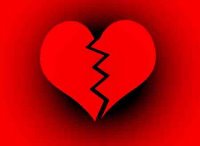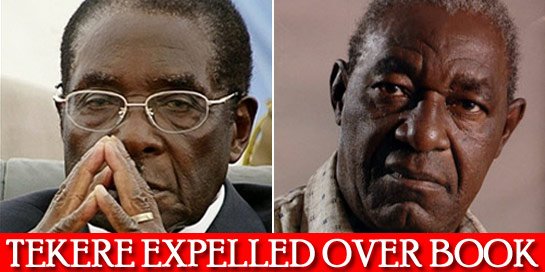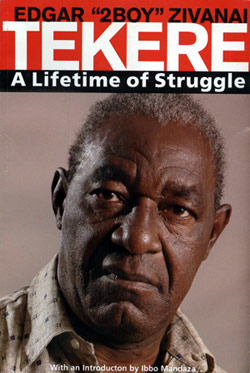Last updated: 01/24/2007 03:22:41
HAVING read Edgar Tekere's book, I did not get the impression that we were being told that Robert Mugabe did not have a mind of his on, which got me asking; did your columnist Mutumwa Mawere actually read it?
It is dangerous to join a debate based on a book that one has not read. He has concluded that Tekere sought to re-write history. In order for anyone at all to make such a categorical statement against liberation stalwarts like Tekere, it then becomes necessary to provide readers with sources of accurate records of the liberation struggle.
What exactly are the "misunderstood democratic values" that the country appears to be in search of? If, in accordance with Mawere's views, Mugabe does possess democratic values, why is there overwhelming evidence to the contrary? I personally would need specific examples.
A democratic leader would not have abolished the post of Prime Minister and become an executive president without seeking the mandate of the Zimbabwean people. He would not have unilaterally sent Zimbabwean soldiers to their deaths in the jungles of the Congo and pulled Zimbabwe out of the Commonwealth because he was being asked to adhere to the Harare Declaration. The ascendancy of Joice Mujuru to the deputy presidency was undemocratic. People were dismissed from the party for seeking to exercise their democratic right to lobby for a candidate of their choice. The list of undemocratic actions carried out by Mugabe is endless and Mawere knows it.
I hold no brief for Jonathan Moyo. In my view, he played a pivotal role in the economic and political demise of Zimbabwe. Anyone who conjures up laws such as AIPPA, calls it an excellent piece of legislation and goes on to actively support POSA is downright evil. He was an active participant of the land reform project, claiming it would create 800 000 jobs and some say he was a multiple farm owner. He was determined to see the destruction of Kondozi Estates and the fact that many former workers were abandoned along the highway to Mutare did not move him. In fact, I do believe a Jonathan Moyo with power would be an extremely dangerous person. He proved it beyond any reasonable doubt during his five year reign of terror while in government.
ZANU was never really a democratic force. One only needs to compare it with the ANC of South Africa, or even ZAPU. If ZANU had been democratic, amendments to the Lancaster House constitution would have been those meant to strengthen democratic institutions instead of creating a dictatorship, as has been the case in the majority of the 17 amendments. Who exactly are those people who want their versions of history to be the only ones in relation to how leaders in Africa ought to be selected?
Here is one statement that I had to read several times because I genuinely thought that a person of Mawere's intellect cannot possibly believe in it; "We do not have any record of Mugabe being comfortable as a beneficiary of an opaque selection process or seeking to avoid elections." Where has this gentleman been? Zimbabwe might not have missed a single election but, apart from the reprehensible and downright barbaric manner in which our elections are conducted, the electoral laws themselves are meant to ensure that Mugabe remains in power. Only a democratic coward could have enacted such laws. Whether Mawere likes it or not, Mugabe and his lieutenants are indeed afraid of the vote. Very much so! Here are a few examples;
Excessive use of force by Zanu PF More than 150 people died in the run up to the 2000 and 2002 parliamentary and presidential elections respectively. In one example Tichaona Chiminya and Talent Mabika of MDC were petrol bombed in their campaign vehicle in broad day light and they died in the inferno. The alleged murderer was one Joseph Mwale, a CIO operative who has never been brought to trial. Not a single statement was issued by Mugabe condemning the violence. He had in fact, at a rally in Manicaland, proclaimed that "death will befall you", a message intended for all those who were bent on opposing his party.
Downright rigging happens in our elections. Margaret Dongo proved it in the case of Sunningndale. Bernard Chidzero congratulated Henry Hamadziripi for having won Harare Central in the 1990 elections but was surprised later to be told he had won because some postal votes from somewhere were added to his lot. More recently in 2000 Zanu PF victory was nullified in the case of more than twenty constituencies. Needless to say the Zanu PF parliamentarians in question did not vacate their seats because they appealed and not surprisingly, the appeals were never heard.
It has also been proved that Zanu PF uses food as a weapon against peasants who may wish to support the opposition.
Opposition parties cannot campaign freely. Under POSA, they hardly ever get permission to assemble. In the event of permission being granted, their rallies are often violently disrupted by the Mugabe sponsored youth militia.
The voters' roll has always been a bone of contention because it has always been a shambles. The Registrar General consistently refuses to provide electronic copies and the costs of securing hard copies are prohibitive. It has been proven that dead people do in fact participate in our elections.
Mawere has to be aware of the implications of the Citizenship Act which was passed into law just before the 2002 presidential elections with the enthusiastic support of Jonathan Moyo, one might add. Millions of Zimbabweans by birth were deprived of their right to vote because this new piece of legislation claims that because their parents were born elsewhere, they are deemed to belong to their parents' countries of birth. Twisted logic indeed. Jonathan Moyo now views it as a "primitive" law, even though he supported its enactment.
In the 2005 parliamentary elections, observers were only invited from countries whose favourable views were a foregone conclusion. Mugabe personally vetoed the invitation list. It was as if he was inviting people to something as private as a wedding.
I did not get to vote in the presidential elections of 2002 despite investing 21 hours of my time in a queue. For some inexplicable reason we were simply tear gassed from the polling station. Voting stations in urban areas had been drastically reduced so there were only 60% of the 2000 numbers.
Mugabe single handedly appoints the Electoral Supervisory Commissioners.
One could go on and on. There is overwhelming evidence that we did not elect Robert Mugabe to be our leader in 2002. For that Mawere should turn to the numerous reports by international observers. One of them, in fact that of the Commonwealth observer group, partly explains why we are no longer a member of that body. Mugabe was incensed that a fellow African, a Nigerian, authored a report that questioned his democratic credentials. The fact that we allowed Mugabe to stay in power even though we did not vote for him is a different story altogether and has been and continues to be debated at different fora. And by the way, if Mugabe was not afraid of elections he would not be seeking to extend his term by another two years to 2010 in the name of harmonizing parliamentary and presidential elections. Why not harmonize in 2008?
Mawere argues that Mugabe's behaviour is consistent with that of a democrat. If Mugabe believed that the move to remove Ndabaningi Sithole from power was undemocratic, why did he not speak out against it? How come Sithole's remains are not interred at the national shrine when in fact Mugabe is the only one who decides who gets buried there? Without listing them, Mawere also alludes to values that inform Mugabe's choices. For examples, what values informed his choices when he gave land to people who are unable to utilise it so that Zimbabwe is now a basket case when less than a decade ago we used to export food? What values informed his decision to award $3 billion dollars to ex-combatants against the advice of his Minister of finance, thereby triggering an unprecedented economic downfall?
It is patently dishonest to say when Tekere set up his own political party Mugabe allowed him to compete freely for the national space. Patrick Kombayi, the then ZUM candidate for Gweru urban nearly lost his life at the hands of Mugabe's henchmen. His crime was to dare exercise his democratic right against Simon Muzenda. Elias Kanengoni and Kizito Chivamba (head of CIO for Midlands and ZANU P.F. youth league member respectively) were found guilty of attempted murder. Instead of condemning such acts of senseless violence, Mugabe pardoned the culprits. What sort of message does that send and what does it say about Mugabe's democratic credentials when an individual whose salary is paid for by the tax payer commits a heinous crime and is immediately shielded from jail?
Contrary to Mawere's assertion under the heading "Disclosure Two", Moyo did not express the view that Mugabe should have been eternally grateful to people who propelled him to the throne. He simply pointed out that Mugabe marginalised anyone whom he viewed as a potential contender to the throne. This point of view, one might argue, is actually borne by facts. For example, how would Mugabe explain the selective sacking of Maurice Nyagumbo, Dzingai Mutumbuka and Enos Nkala in the aftermath of the Willowgate scandal? In the case of Nyagumbo, Mugabe's heartlessness could not have been better demonstrated. Nyagumbo offered to resign as soon as his name appeared in the press. Mugabe begged him to stay, arguing that he would feel abandoned since he viewed Nyagumbo as one of his closest confidants.
However, when public and international opinion expressed disgust over the issue, Mugabe felt the need to fire a few people and Nyagumbo was identified as one such scapegoat. The three were not the only ones who had misused the Willowvale motor vehicle facility. There were a host of others, among them Mugabe's late wife Sally Mugabe. By asserting that a president of a country should put national interests above those of the party, it is as if Mawere actually believes that Mugabe adheres to this principle. Since when has Mugabe ever put Zimbabwe's interests above those of Zanu PF? It is an open secret that Zanu PF dips into state coffers with impunity and civil servants are often coerced to fund party activities.
Mawere, for whatever reason, might decide to see no evil and hear no evil, but Mugabe does come out as an evil and vengeful leader. Twenty thousand people perished in Matabeleland between 1980 and 1987. Those who oversaw the bloodbath were rewarded with promotion. In June 2005 seven hundred thousand people (18% of Zimbabwe's population) were rendered homeless through the infamous operation Murambatsvina. In excess of 2 million people were indirectly affected by that operation. Only an evil leader can do that to his own people! His treatment of Joshua Nkomo, one of the luminaries of Zimbabwe's liberation struggle, was downright evil.
Under "Disclosure Three" Mawere questions Moyo's support for the view that Mugabe is 90% responsible for the mess that our country is in. The point is, we may quibble over percentages but being leader means being responsible for the direction that one's country takes, warts and all. Mugabe literally sowed seeds of corruption and nursed them to fruition. Now our country boasts being in the top 30 most corrupt countries in the world.
Gideon Gono drives a US$138 000 vehicle because those are the values that Mugabe inculcated into the national psyche. Mugabe is driven in a custom made bullet proof vehicle which at the time of purchase was said to be the fourth such vehicle on the continent. The vehicle was purchased at a time when the fuel situation had started to bite and 4 million Zimbabweans needed food. He is escorted by a fleet of no less than ten vehicles. He has two state houses opposite each other in Harare, apart from the fact that he now has a private home in Borrowdale where he is making life miserable for his neighbours. Let us not forget that Ian Smith drove around in a Peugeot 504!! So, what percentage in terms of blameworthiness would Mawere rather attribute to Mugabe?
I am not too sure what Mawere's problem is regarding Moyo's New Year resolution. Why on earth does he believe that 2007 is a year of action for Zanu PF only? How does Moyo's designation of 2007 as a year of action translate into an assertion that Zimbabweans should expect it to be a better year? Mawere argues that Moyo got it wrong on Tsholotsho hence he cannot possibly get it right on 2007. What kind of logic is this? Isn't life about sometimes getting things wrong and at other times getting them right? Besides, what exactly did Moyo get wrong about Tsholotsho? The long and short of it was that a group of people got together to put together a strategy to have their preferred candidate elected and were punished for it. If anything, Tsholotsho confirmed Mugabe's high handedness and lack of respect for the constitution of his own party.
In the end, the debate shifted from issues raised in Tekere's book to an attack on Moyo's hypocrisy. The bottom line is, Mawere is of the opinion that Moyo should not criticise the hand that profitably fed him. How tragic. For me the big question that Mawere should have asked, instead of accusing Tekere of re-writing history (sadly, without providing evidence that this is indeed the case) is, why has Mugabe remained mum? Why are people falling all over themselves to defend a man who is very much alive and has all the resources to make himself heard?
Mawere does seem to have joined the list of Mugabe's praise singers. Could there be truth in that he was a beneficiary of the Zanu PF patronage machinery hence his reluctance to criticise – to use his own words – "the hand that profitably fed him", with the hope that his properties may be returned to him?
By the way, I did read the numerous articles in which Mawere sought to rubbish the view that he benefited from being well connected to those at the top of the Zanu PF hierarchy. I am saying this so that he does not feel the need to tell his side of the story once more. At the end of the day, after having advocated that people should avoid getting personal when debating issues of national importance, Mawere failed dismally to adhere to that principle. The starting point should at least have been to read the book.
Abigail Mphisa writes from Bulawayo. She can be contacted on
Yahoo! Mail is the world's favourite email. Don't settle for less, sign up for your free account today.















